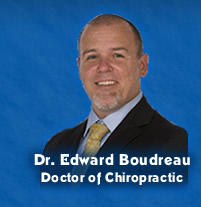| |
The use of anabolic steroids is a hot sports issue. It has implications for both professional players and for young athletes who feel that they won’t have a competitive edge without steroids or other performance enhancers. But, while professional athletes have a variety of trainers, nutritionists and health care specialists available, kids are on their own. And unlike international, professional and collegiate sports competitions and programs, high school athletic programs rarely test for steroid use.1
Despite media warnings about the risks of anabolic steroids—which include fertility problems, potentially irreversible masculine traits in females and breast enlargement in males, toxic effects on the liver and cardiovascular system, arrested growth, and damaging psychiatric side effects—kids keep taking them. According to surveys, 6.1% of students nationwide had taken oral or injected steroids without a doctor’s prescription at least once.2 The motivation to use steroids often comes from peer pressure, andin some cases, from parental demands to achieve greater goals. In addition, some teenagers simply want to look better.
How do you start a conversation with your child about steroids?
As with any touchy topic, you need to know how to ask the right questions to facilitate dialog without alienating your children.
-
Be yourself and invite conversation.
-
Ask how the children’s training is going.
-
Ask if they are doing anything new to get an edge.
-
Start questions about supplements—ask if they are using any; if so, which ones and what benefit they’re expected to confer.
-
Approach the subject of steroids tactfully. Explain that it’s all about choices. Every single athlete at some point needs to decide whether to achieve his or her greatest potential naturally—or to cheat by using steroids or similar substances.
-
Observe your children’s friends. See if they are developing muscle mass quickly, appear nervous, have mood swings, seem different, spend many hours in the gym or working out.
-
If your child exhibits these signs, have him or her tested for steroid use. If the test results are positive, seek professional help. Steroids affect the brain as much as they affect the body, so kids often need the counseling of a sports psychologist.
What do teenagers need to know about steroids?
Steroids can seriously harm or even kill you. The side effects include fertility problems, potentially irreversible masculine traits in women and breast enlargement in men, toxic effects on the liver and cardiovascular system, slowed growth, and damaging psychiatric side effects.
Steroids won’t make you a better athlete. They build muscles, but don’t improve skills such as hand-eye coordination, balance, reaction, or reflexes -- which are all neurological factors. To be competitive in most sports, it’s the skills that need to get better.
Taking steroids is cheating. It interferes with fair competition. Instead of taking a shortcut, strive to achieve your greatest potential naturally. Set realistic goals and praise yourself when you achieve them.
Encourage your athlete children to talk to your doctor of chiropractic about improving their athletic performance naturally. Your doctor of chiropractic can coach your children on proper rest, recuperation, and training techniques to reduce the risk of injuries. He or she can teach your children proper nutrition to help them achieve their greatest potential.
© 2010
Salama Chiropractic
Oak
Ridge, North
Carolina (NC) Chiropractors - Greensboro & Winston
Salem.
| |



























